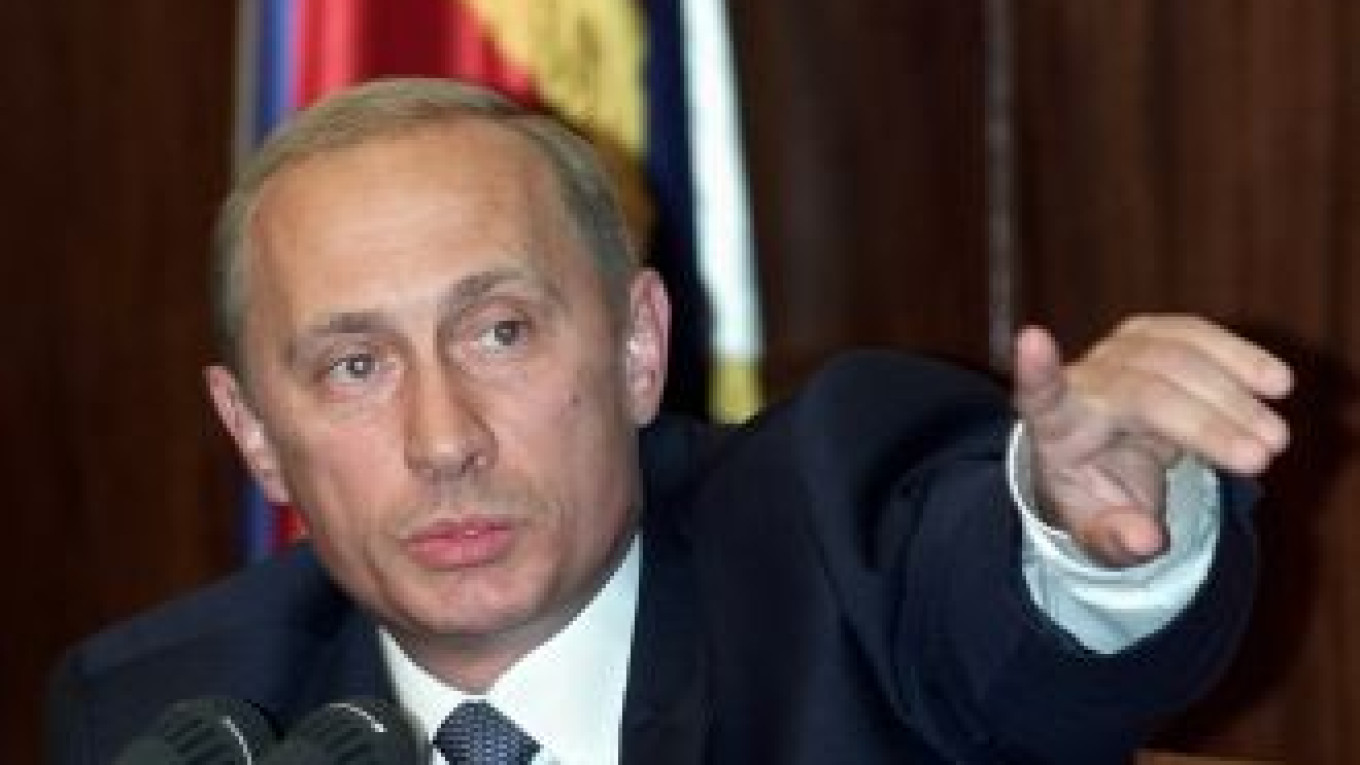President Vladimir Putin on Thursday commanded the Cabinet to make good on his costly campaign promises, in a sign that he may be unhappy about how they are being fulfilled.
This is the second time that Putin highlighted his intention to get the Cabinet to keep his word, after reprimanding three ministers this past fall.
"No doubt we need to zero in on working together to carry out these campaign promises," Putin said in a meeting with Prime Minister Dmitry Medvedev's Cabinet. "It can't be that the Cabinet is off on its own and the promises made to the country are off on their own."
Putin met the Cabinet to recap the past year and set priorities for next year, the Kremlin said on its website.
Some of the decrees Putin signed immediately after his inauguration as president May 7 sought new measures and outlays in housing, education and health care — and they stemmed from his campaign rhetoric.
Medvedev responded that he saw eye to eye with Putin about the need to achieve the goals Putin set in the decrees.
"There can be no two ways about it, of course," Medvedev said. "We are all moving down the same road."
But he also pointed out the ongoing financial woes around the world, apparently as factors that could limit his options.
Medvedev made sure to note the Cabinet is facing problems that are more major than anything the government encountered over the past 12 years. He likely referred to the period after Putin first became president in 2000.
The prime minister then wondered aloud why the issues are so pressing and answered his own question.
"It's simply because it is time we resolved these problems," Medvedev said.
Alexei Makarkin, an analyst at the Center for Political Technologies consultancy, said the challenges include the long-delayed changes to the retirement pension system and the necessity to upgrade equipment used by the armed forces.
The Cabinet moved to comply with Putin's decrees after the broadside at the ministers, Makarkin said. But that wasn't sufficient, he added.
"The problem is where to get the money to carry out these promises," he said.
Putin is reminding ministers that he's adamant about the decrees, and Medvedev is responding that he's trying but it's not his fault if things aren't working out amid a fiscal tightening, Makarkin said.
"The game is going on," he said. "It's likely that the president will make harsher statements, while the Cabinet will be on the defensive."
In other business Thursday, the Cabinet backed an aerospace program for the 2013-2020 period that aims to increase production of equipment for the industry, such as satellites and boosters.
Russia's share in the market should climb from the current 10 percent to 16 percent as the development program ends, Vladimir Popovkin, chief of the Russian Space Agency, said at the regular Cabinet meeting.
Under the program, Russia also plans to have 113 satellites in orbit in 2020, Popovkin said. He said in March that the number of orbiting satellites was 53.
Companies and the federal budget are expected to invest 2.1 trillion rubles in the industry over the course of the program, Medvedev said.
Related articles:
A Message from The Moscow Times:
Dear readers,
We are facing unprecedented challenges. Russia's Prosecutor General's Office has designated The Moscow Times as an "undesirable" organization, criminalizing our work and putting our staff at risk of prosecution. This follows our earlier unjust labeling as a "foreign agent."
These actions are direct attempts to silence independent journalism in Russia. The authorities claim our work "discredits the decisions of the Russian leadership." We see things differently: we strive to provide accurate, unbiased reporting on Russia.
We, the journalists of The Moscow Times, refuse to be silenced. But to continue our work, we need your help.
Your support, no matter how small, makes a world of difference. If you can, please support us monthly starting from just $2. It's quick to set up, and every contribution makes a significant impact.
By supporting The Moscow Times, you're defending open, independent journalism in the face of repression. Thank you for standing with us.
Remind me later.


